2025 Annual Report
25th Anniversary Edition
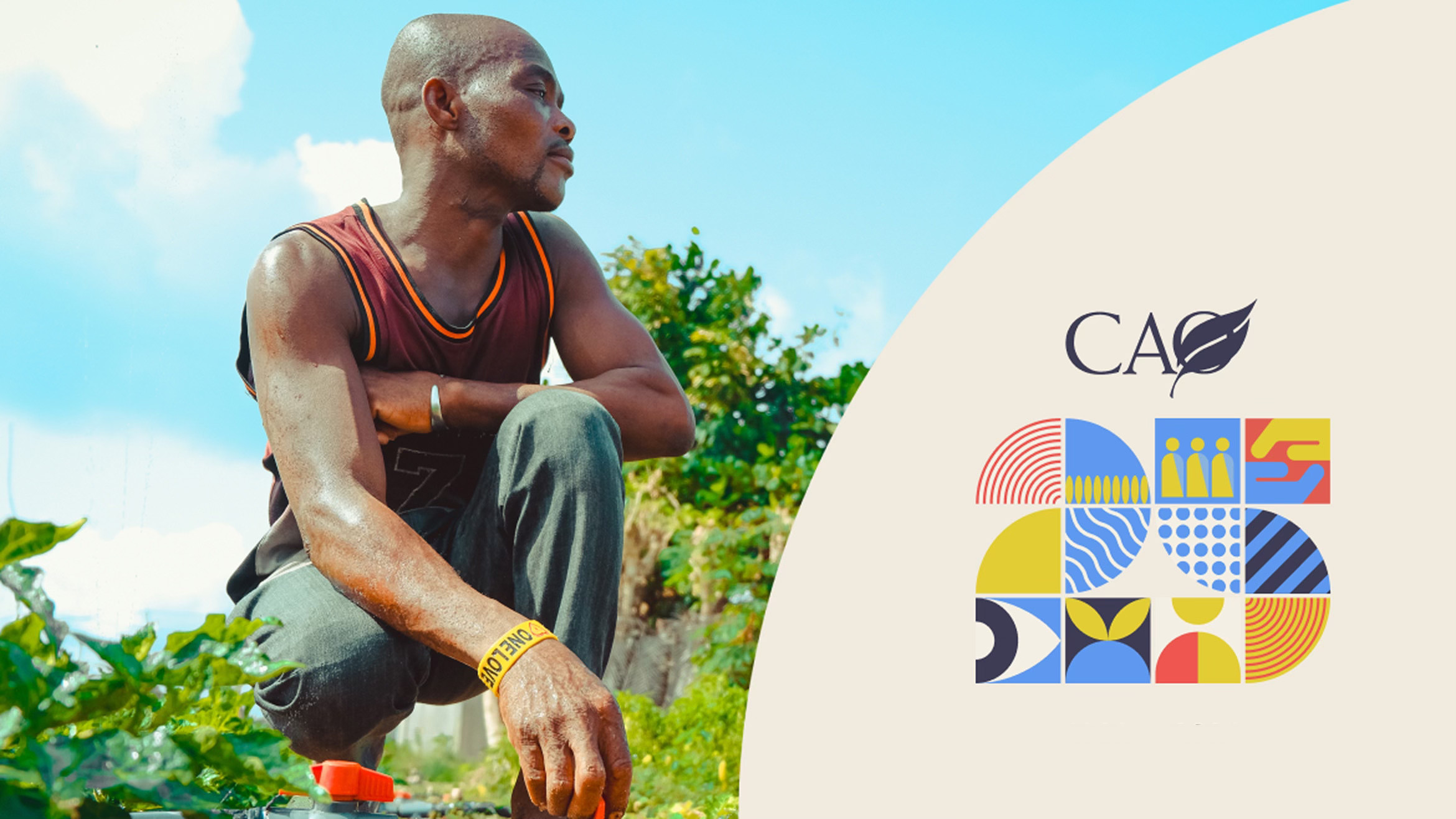
Download the 2025 Annual Report
Learn about CAO’s history and explore our cases and initiatives since 1999.
-
 1999
1999CAO Office Established
CAO was established in response to ongoing calls from global and regional civil society organizations for an independent accountability mechanism for the World Bank Group’s private sector arms, IFC and MIGA. Following an independent selection process that included representatives from civil society and the private sector, World Bank Group President James D. Wolfensohn appointed Dame Meg Taylor as the first IFC/MIGA Compliance Advisor/Ombudsman. She began her tenure in June 1999, and CAO’s first Operational Guidelines were published the following year.
 Photo: David Atkins/CAO, 20052000
Photo: David Atkins/CAO, 20052000First Case: Peru: Yanacocha Mine in Peru
CAO’s first case came from communities in Cajamarca, Peru in July 2000 after a mercury spill from a truck traveling from the Yanacocha Gold Mine. The mine was supported by IFC. Over several years, CAO facilitated a dialogue table and participatory water monitoring program for the community and mining company. CAO’s experience in Cajamarca was documented in two advisory notes and in Building Consensus: History and Lessons from the Mesa de Dialogo y Consenso CAO-Cajamarca, Peru. CAO handled 11 complaints about the project through 2017.
View case page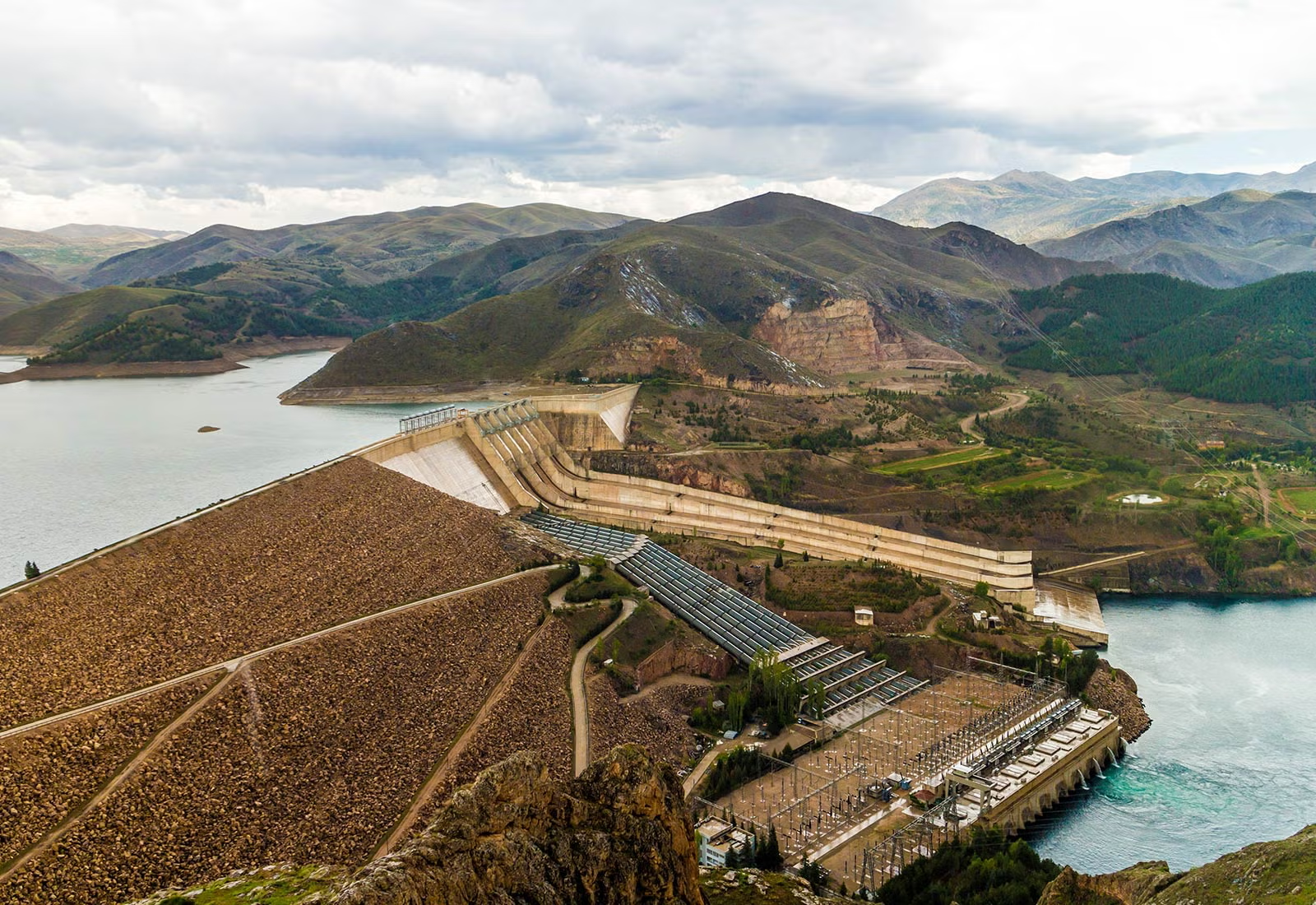 Photo: World Bank Group, 20182001
Photo: World Bank Group, 20182001First Case from Africa: Uganda: Bujagali Hydropower
CAO’s involvement in the Bujagali Hydropower Project, a landmark infrastructure development on the River Nile in Uganda, began in 2001 after communities filed complaints about displacement, compensation, and environmental impacts of the project. Five later complaints about worker injuries during project construction and impacts of the project’s transmission line were addressed through both dispute resolution and compliance processes.
View case page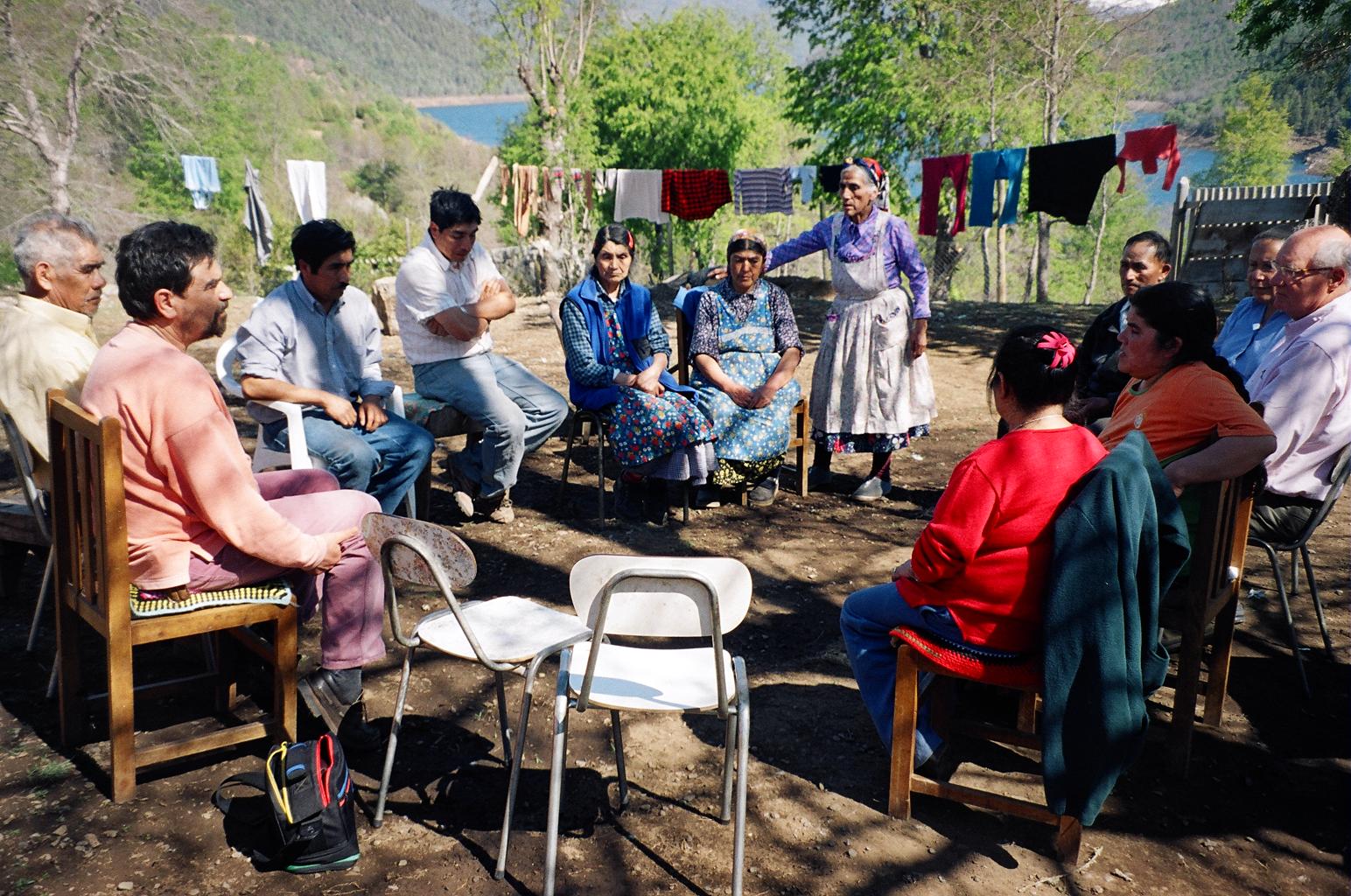 Photo: CAO, 20062002
Photo: CAO, 20062002Chile: Pangue Hydroelectric Project
In 2002, Pehuenche women in Chile filed a complaint to CAO about the adverse impacts of the Pangue Hydroelectric Project and inadequate compensation. Although IFC had divested, CAO accepted the case due to IFC’s prior involvement and unfulfilled commitments. A CAO-facilitated agreement provided funds for local development and cultural preservation, and working with organizations like Mapuche University, established Kume Rakiduam and later We Monguen, which advanced leadership training, women’s empowerment, bilingual education, and indigenous language preservation for communities in the Alto Bío Bío region.
View case page2003First External Effectiveness Review
Since its inception in 1999, CAO has initiated regular independent effectiveness reviews. The first review was initiated in 2003, after three years of operations, with a second in 2006, a third in 2010, and a fourth in 2020. Based on rigorous analysis and comprehensive stakeholder input, CAO has used these reviews to adapt and change, with recommendations informing key revisions to CAO functions and processes through revised Operational Guidelines in 2004, 2007, and 2012, and the new CAO Policy in 2021.
Learn more Photo: CAO, 20112004
Photo: CAO, 20112004Baku-Tbilisi-Ceyhan (BTC) Pipeline - Most Complaints on a Single Project
Between 2004 and 2011, CAO received 33 complaints about the Baku-Tbilisi-Ceyhan (BTC) oil and gas pipeline, which runs through Azerbaijan, Georgia, and Türkiye, stretching almost 1,800 kilometers from the Caspian Sea to the Mediterranean. The majority of the complaints came from Georgia, despite the country hosting the fewest kilometers of the pipeline. BTC’s willingness to engage in dialogue with impacted communities increased due to CAO’s involvement and encouraged BTC to strengthen its own grievance mechanism.
View case page2005IFC Requests Compliance Audit of Soybean Project in the Amazon
CAO released a compliance audit in May 2005 that was initiated at the request of IFC Executive Vice President, Peter Woicke, regarding the expansion of the Amaggi soybean plantation in Brazil. The project was criticized for contributing to deforestation in the Amazon. CAO found that IFC did not correctly categorize the project given its potential for significant adverse environmental impacts.
View case page2006Democratic Republic of Congo: Anvil Mining Project
In 2006, World Bank Group president, Paul Wolfowitz, requested CAO conduct a compliance audit of MIGA’s involvement in the Dikulushi copper and silver mine in the Democratic Republic of Congo due to alleged security and human rights violations carried out by armed forces. CAO found that MIGA’s due diligence had failed to address the possibility of the project exacerbating conflict or the mine’s security provisions being detrimental to the local community.
View case page Photo: CAO, 20072007
Photo: CAO, 20072007CAO Establishes Outreach Program
In 2007, at the Board’s request, CAO launched a global outreach program to civil society to raise awareness about its role. CAO hired a dedicated staff member, developed new information materials, and a new website, while embarking on a series of regional outreach workshops all over the world in collaboration with civil society, non-profit groups, and other accountability mechanisms. Early findings revealed that limited awareness of IFC/MIGA, their projects, and grievance mechanisms like CAO created major information barriers preventing affected communities from accessing recourse and remedy. One of CAO’s first outreach events took place in Nairobi, Kenya.
Learn more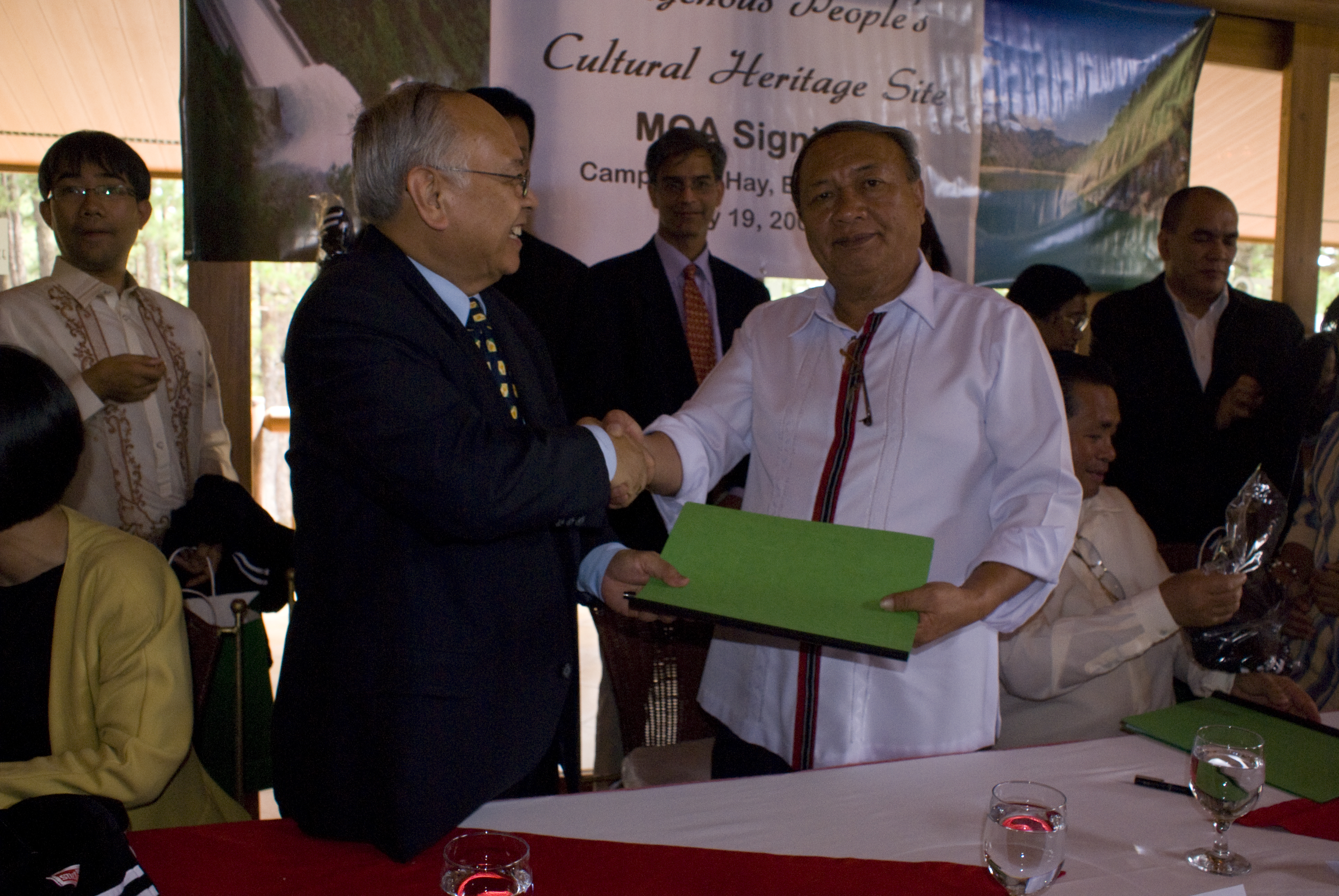 Photo: CAO, 20092008
Photo: CAO, 20092008The Philippines: Ambuklao-Binga Hydroelectric Project
From 2008-2010, a CAO dialogue process helped address a 60-year land conflict in the Philippines where indigenous Ibaloi community members had been displaced by the development of the Ambuklao-Binga hydropower projects. IFC financing supported the privatization of the plants. Agreements reached between community, company, and government representatives secured community access to land, local benefits, and livelihood opportunities. The Philippines Secretary for Energy called the CAO process “a new model for development”.
View case page Watch Video Photo: CAO, 20102008
Photo: CAO, 20102008First Labor Complaint: Türkiye: Standard Profil
In 2008, CAO received a complaint from trade unions representing workers at an auto parts manufacturing plant in Türkiye financed by IFC. The complaint raised concerns about labor and working conditions, including rights of association and restrictions on unionization. CAO’s dispute resolution process led to training at the company on IFC’s labor standard and the establishment of social dialogue structures in the company.
View case page Photo: Gamal Paysa/CAO, 20082009
Photo: Gamal Paysa/CAO, 20082009Wilmar Group and Palm Oil in Indonesia
In 2009, CAO released a compliance audit of IFC’s support for the Wilmar Group, a major palm oil producer with plantations in Indonesia and Malaysia. The audit, prompted by complaints over land clearance for plantations, found IFC failed to apply its standards and assess supply chain risks. In response, World Bank Group President Robert Zoellick suspended new palm oil investments until a global strategy was developed. From 2007-2011, CAO addressed three Wilmar complaints.
View case page 2010
2010CAO Advisory Work Informs Review and Update of IFC’s Sustainability Framework
Four years after the adoption of IFC’s Sustainability Framework, CAO published a review of project-level outcomes from the application of IFC’s new policies and standards. Building on previous advisory work, CAO’s review recommended strengthening IFC management systems, staff incentives, and support for clients to improve project-level outcomes and enhance IFC’s local development impact. CAO’s experience showed that sound company-community engagement creates predictability for host communities around project impacts and mitigation measures, and that effective implementation is critical to prevent conflict.
Read the review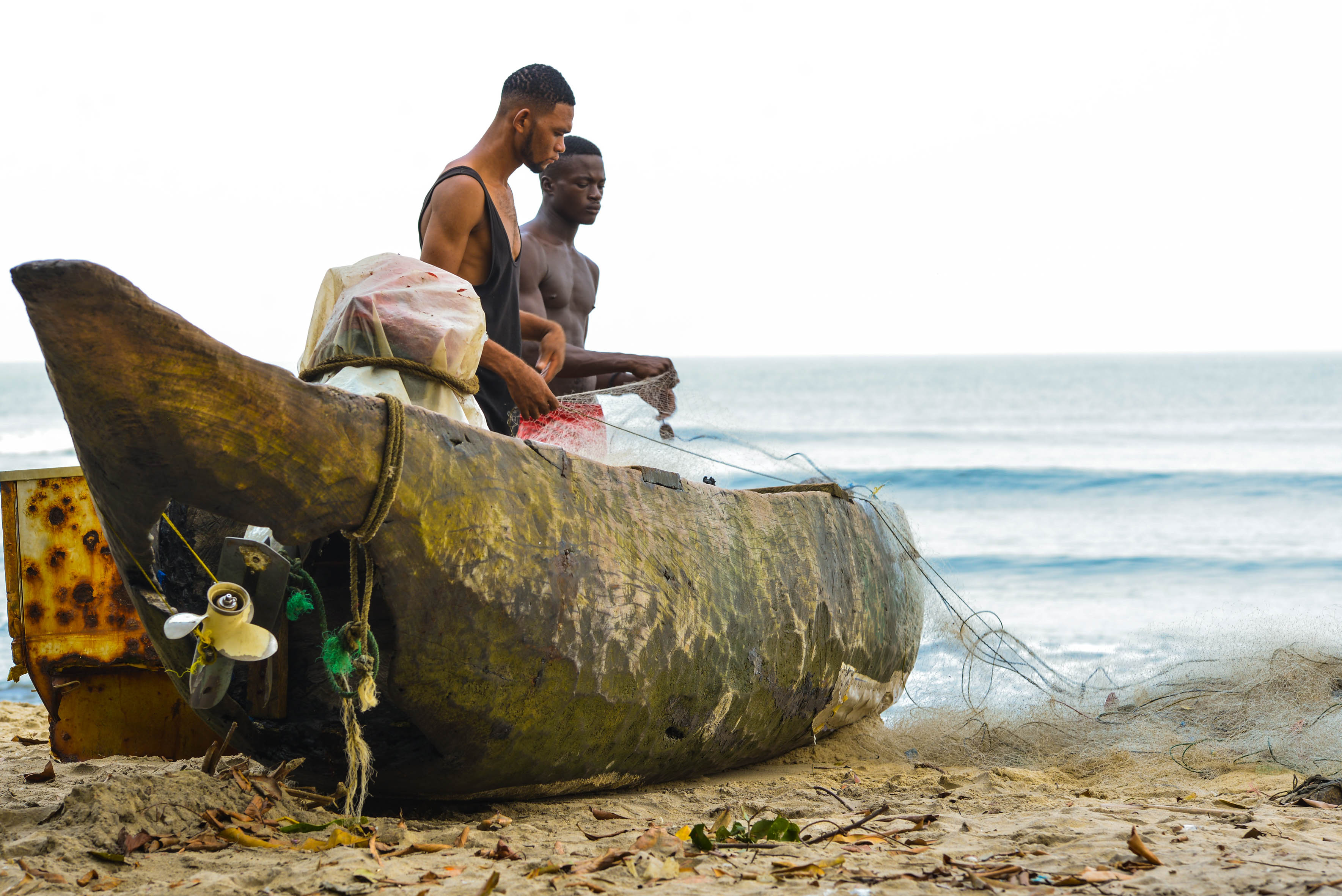 Photo: Rodrig Mbock/CAO, 20192011
Photo: Rodrig Mbock/CAO, 20192011Chad-Cameroon Pipeline Project
In 2011, CAO received complaints from communities living alongside the Chad-Cameroon Pipeline Project, a 1,070 mile pipeline transporting crude oil from Chad to a facility off the coast of Cameroon, which was supported by IFC and the World Bank. In Cameroon, CAO’s dialogue process resulted in the creation of a fishermen’s cooperative and secure land tenure for indigenous communities; in Chad, the dialogue resulted in compensation for farmers and rehabilitation of roads and water wells.
View case page2012Global Financial Sector Audit
CAO's first sectoral audit was of IFC's financial intermediary (FI) investments. In response, IFC committed to improve the E&S performance of its FI business, consult with key stakeholders, and strengthen advice to clients. CAO concluded its monitoring of the case in 2025.
Learn more Photo: CAO, 20132013
Photo: CAO, 20132013India: Tata Ultra Mega Power Plant
In 2013, CAO released a compliance audit in response to a complaint from fishing communities in Gujarat, India about the IFC-supported Tata Mundra power plant. The audit found significant gaps in IFC’s due diligence and supervision of project risks and impacts. The communities later sued IFC seeking to hold it accountable for harm caused by the project and the U.S. Supreme Court ruled IFC lacked absolute immunity from lawsuits. In 2025, CAO concluded compliance monitoring noting that IFC actions had not adequately addressed its findings, leaving complainants’ concerns about health, livelihoods, and the environment unresolved.
View case page Photo: CAO, 20152014
Photo: CAO, 20152014Honduras: CAO initiates Dinant Case Following Reports of Violent Land Conflict
In January 2014, CAO released a compliance audit of IFC’s investments in Corporación Dinant in Honduras. CAO initiated the compliance review in response to concerns about violent land conflict on and around Dinant palm oil plantations in the Aguán Valley. IFC’s learning from the Dinant audit included their approach to contextual risk analysis, use of security forces, and procedures related to client E&S performance, as well as supply chain and conflict risk assessments for agribusiness investments. Dinant repaid its loan to IFC in 2018. IFC agreed to a settlement with affected families in 2024.
View case page Photo: Felix Davey/CAO, 20142015
Photo: Felix Davey/CAO, 20142015Nicaragua: Addressing Impacts of a Public Health Epidemic
In 2008, former workers from Nicaragua Sugar Estates Limited (NSEL), an IFC client, filed a case to CAO about chronic kidney disease (CKD) which they believed was related to their work. Through the dialogue process, stakeholders pursued local and practical solutions focused on scientific research into the causes of CKD, community income-generation projects, and broader public health initiatives. CAO closed the case in 2015 publishing a case study and films documenting outcomes from the process.
View case page 2016
2016CAO Publishes Grievance Mechanism Toolkit
In 2016, CAO Advisory published a Grievance Mechanism Toolkit to help IFC and MIGA clients improve existing project-level grievance mechanisms and implement best practices for new ones. Drawing on CAO’s work and expert experience, the interactive toolkit provides accessible, adaptable templates for diverse sectors, cultures, and communities. It addresses gaps in guidance for small- and medium-sized companies, offering tools for troubleshooting, designing, and managing grievance mechanisms, including case studies across different sectors to illustrate effective implementation and management.
View the Grievance Mechanism Toolkit Photo: CAO, 20172017
Photo: CAO, 20172017First Climate-Related Complaint: The Philippines: Rizal Commercial Banking Corporation (RCBC)
In 2017, communities and nongovernmental organizations filed CAO’s first climate-related complaint regarding IFC’s investment in Rizal Commercial Banking Corporation (RCBC), which financed several new coal-fired power plants in the Philippines. The complaint alleged RCBC failed to apply IFC's Performance Standards, causing environmental and social harm and contributing to climate change. CAO’s 2022 investigation found IFC's review and supervision enabled development and expansion of the plants without assurance that they would operate in compliance with IFC's Performance Standards, including requirements to quantify and reduce greenhouse gas emissions. In the photo, CAO’s Vice President, Osvaldo L. Gratacós, receives RCBC complaint from Aaron Pedrosa, Philippines Movement for Climate Justice.
View case page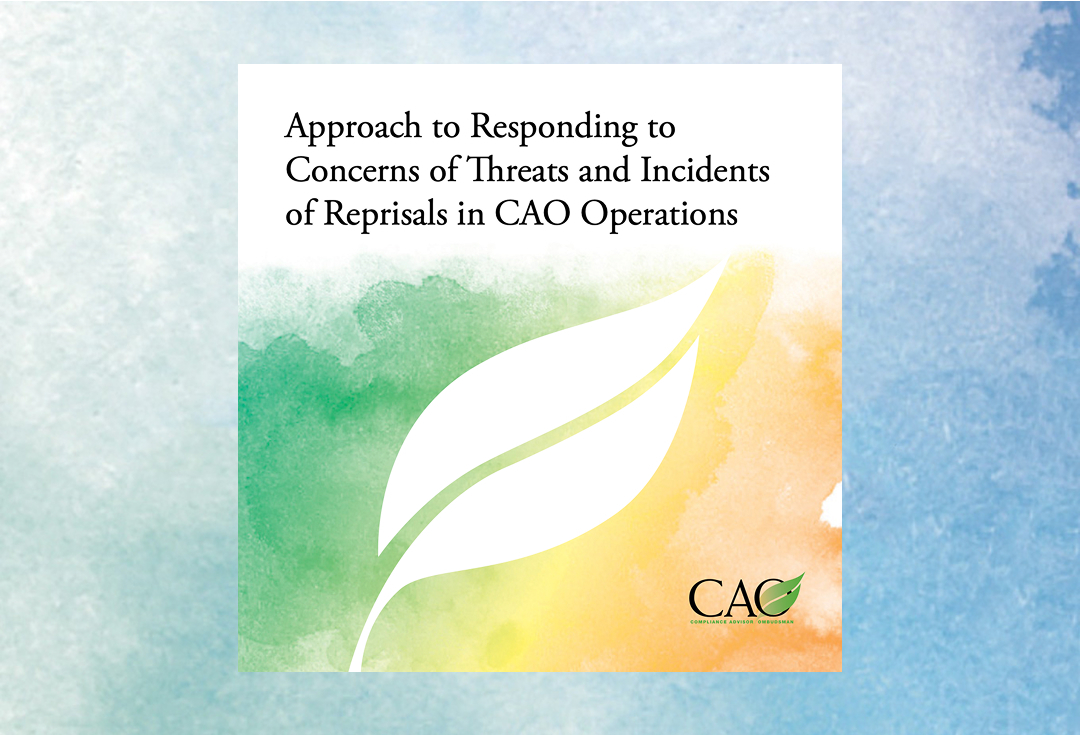 2018
2018CAO Publishes Approach to Addressing Threats and Reprisals
CAO launched its Approach to Responding to Concerns of Threats and Instances of Reprisals in 2018 to guide staff and consultants in addressing situations involving threats and reprisals in CAO operations. CAO conducts regular risk assessments throughout its activities, working with concerned parties to identify measures to prevent reprisals and plan possible responses. After an independent review of the Approach in 2024, CAO improved website access for complainants; expanded knowledge-sharing opportunities; and provided improved tools for staff and consultants for risk assessment and safety in the field.
Learn more about CAO’s efforts to address reprisals concerns 2019
2019Dispute Resolution: Launch of Reflections from Practice Series
CAO launched its Reflections from Practice series to guide staff, mediators, and parties involved in dispute resolution processes. The first publication “Getting Started with Dispute Resolution” outlines principles for initiating a dispute resolution process; “Representation” details strategies for helping parties select representatives for dispute resolution; and “Joint-Fact Finding” explains how to collaboratively collect, analyze, and interpret data to build consensus. The series explained not only the practicalities of CAO’s dispute resolution work, but the foundational principles that guide it.
Browse Reflections from Practice series Photo: Felix Davey/CAO, 20152020
Photo: Felix Davey/CAO, 20152020Mongolia: Oyu Tolgoi Mine
In 2020, CAO concluded a dispute resolution process related to the Oyu Tolgoi copper and gold mine in Mongolia after monitoring implementation of agreements between nomadic herders, the mining company, and local government. For eight years, CAO worked with the parties to address two complaints about the impacts of the mine on land and water resources affecting the herders’ indigenous culture and livelihoods. Oyu Tolgoi is a multi-billion dollar investment in the Southern Gobi that was supported by IFC and MIGA.
View case page Watch video 2021
2021New CAO Policy Goes into Effect
In July 2021, the IFC/MIGA Independent Accountability Mechanism (CAO) Policy came into effect building on CAO’s two decades of experience, recommendations from an independent 2020 External Review, and following extensive public consultations. The CAO Policy, which changed CAO’s reporting line from the President to the Board, emphasizes CAO’s role facilitating access to remedy, promotes complainant choice, opportunities for early resolution by IFC/MIGA and their clients, and mandated remedial Management Action Plans to address IFC/MIGA non-compliance and related harm.
Read CAO Policy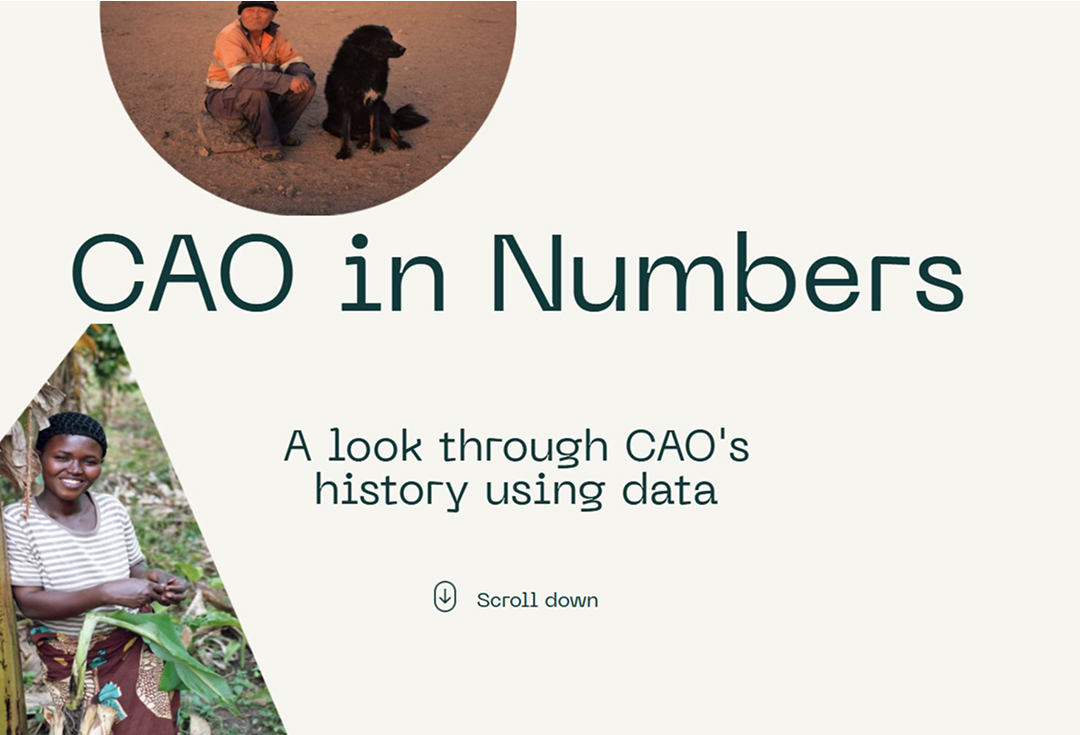 2022
2022CAO in Numbers
In 2022, CAO’s advisory function published CAO in Numbers, an interactive digital report that reviewed over 200 complaints from 58 countries. The report presents key facts and trends from over 20 years of CAO’s work, highlighting how cases were handled and their outcomes. Insights gathered from CAO in Numbers informed CAO’s work as it implemented the new CAO Policy with a focus on improved effectiveness and facilitating access to remedy.
View the interactive report Photo: CAO, 20232023
Photo: CAO, 20232023Building a Global Community of Mediators
Around the world, CAO works with mediators who understand local dynamics and work with local communities as they apply core mediation principles to complex multi-party disputes. CAO brings these mediators together regularly to share their experiences in the field. CAO also conducts capacity building to expand its network of regional mediators. Since 2012, CAO has hosted bi-annual mediator summits. In 2023 in Washington DC, 20 mediators from Africa, Asia, Europe, and Latin America shared best practices and lessons learned for effective company-community dispute resolution.
Learn more2024Kenya: Bridge International Academies
In March 2024, the Board approved an IFC Management Action Plan in response CAO’s investigation of IFC’s investments in Bridge International Academies, Africa’s largest chain of low-cost schools. CAO initiated the investigation to address reports of child sexual abuse at Bridge schools in Kenya. IFC committed to directly fund a remediation program for survivors in counties where Bridge operated or currently operates in Kenya. Between 2018 and 2023, CAO accepted 8 cases related to Bridge schools. IFC exited its investment in New Globe Schools, which owned Bridge, in 2023.
View case page 2025
2025CAO Informs IFC/MIGA’s Approach to Remedy and Responsible Exit
Remedy and responsible exit are key topics in development finance as institutions consider how to address unintended project impacts on communities and the environment. In 2025, IFC and MIGA became the first development finance institutions to establish an interim Approach to Remedial Action and an IFC Approach to Responsible Exit. Drawing on extensive casework, CAO’s insights significantly shaped both approaches. To inform these efforts, CAO published four advisory notes in 2023, sharing insights and data on remedy and responsible exit.
Learn MoreFrom the beginning, CAO developed a pioneering accountability model that included three complementary functions—Dispute Resolution, Compliance, and Advisory—within a single, integrated structure. This innovative approach remains central to our work today, with the true value emerging from the way these functions work together.
Fiscal Year 2025: The Year in Review
Over the past year, we handled 63 cases across 26 countries, closing 18 along the way. Discover regional data and information from this year’s caseload by hovering over the map.
Disclaimer: Explore regional insights by hovering over the map.
View AllAfricaPercentage of FY25 caseload: 41%
Cases by CAO function:
• Assessment: 8%
• Dispute Resolution: 46%
• Compliance: 46%Top sector:
Energy & Mining
Top E&S issues:
Land; Loss of Livelihoods
Middle East and Central AsiaPercentage of FY25 caseload: 14%
Cases by CAO function:
• Assessment: 22%
• Dispute Resolution: 45%
• Compliance: 33%Top sector:
Energy & Mining
Top E&S issue:
Land
East Asia and the PacificPercentage of FY25 caseload: 21%
Cases by CAO function:
• Dispute Resolution: 46%
• Compliance: 54%Top sector:
Financial Markets
Top E&S issue:
Loss of Livelihoods
EuropePercentage of FY25 caseload: 8%
Cases by CAO function:
• Assessment: 20%
• Compliance: 80%Top sectors:
Manufacturing, Agribusiness & Forestry; Infrastructure
Top E&S issue:
Land
Latin America and the CaribbeanPercentage of FY25 caseload: 9%
Cases by CAO function:
• Assessment: 17%
• Compliance: 83%Top sectors:
Manufacturing, Agribusiness & Forestry; Financial Markets
Top E&S issue:
Land
South AsiaPercentage of FY25 caseload: 5%
Cases by CAO function:
• Compliance: 100%
Top sectors:
Energy & Mining; Services; Manufacturing, Agribusiness & Forestry
Top E&S issues:
National/local jurisdiction; Women; Children; Land
In Focus: Photos from Our Work This Year
See photos from our cases in Cambodia, Jordan, Pakistan, Togo, and Uzbekistan, along with highlights from events throughout the year.
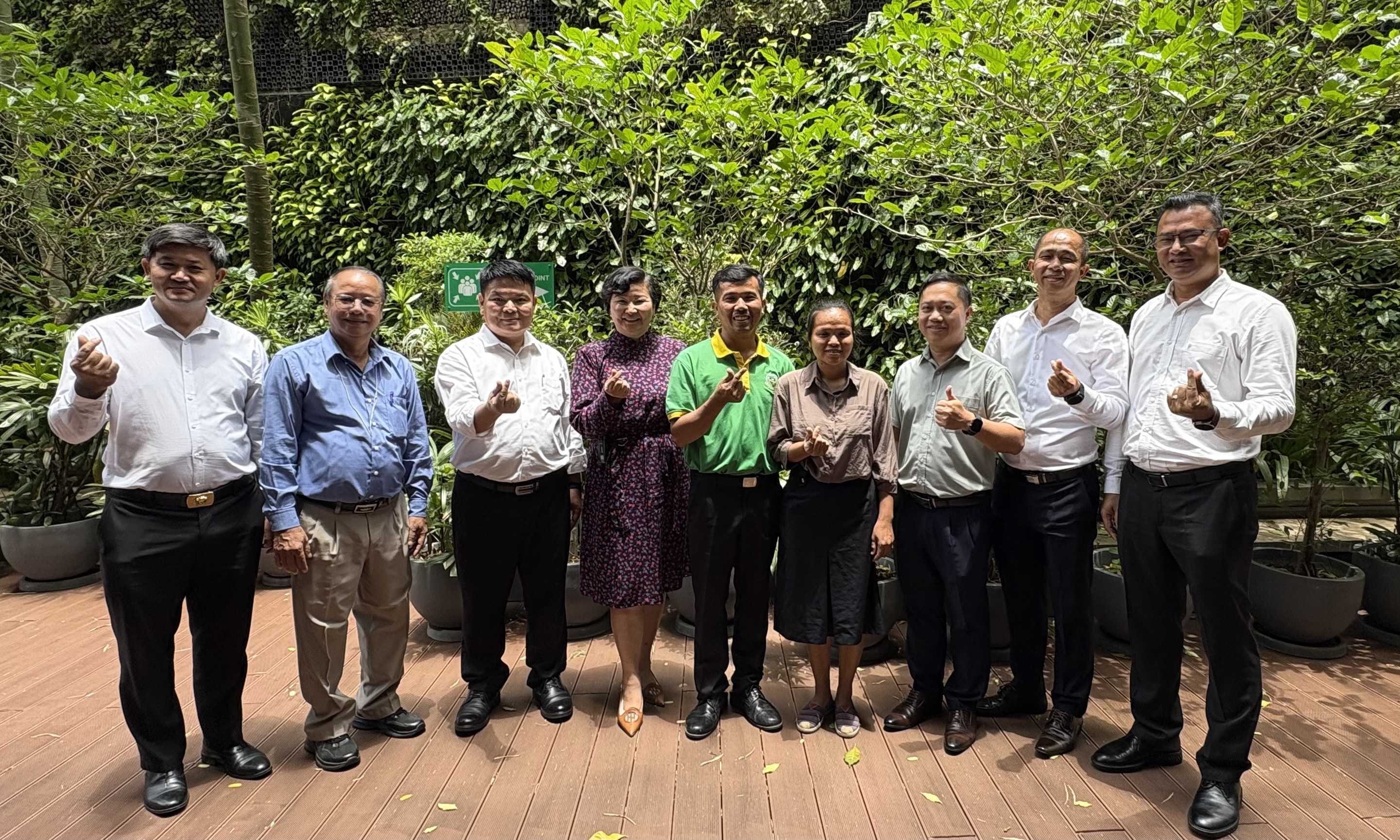
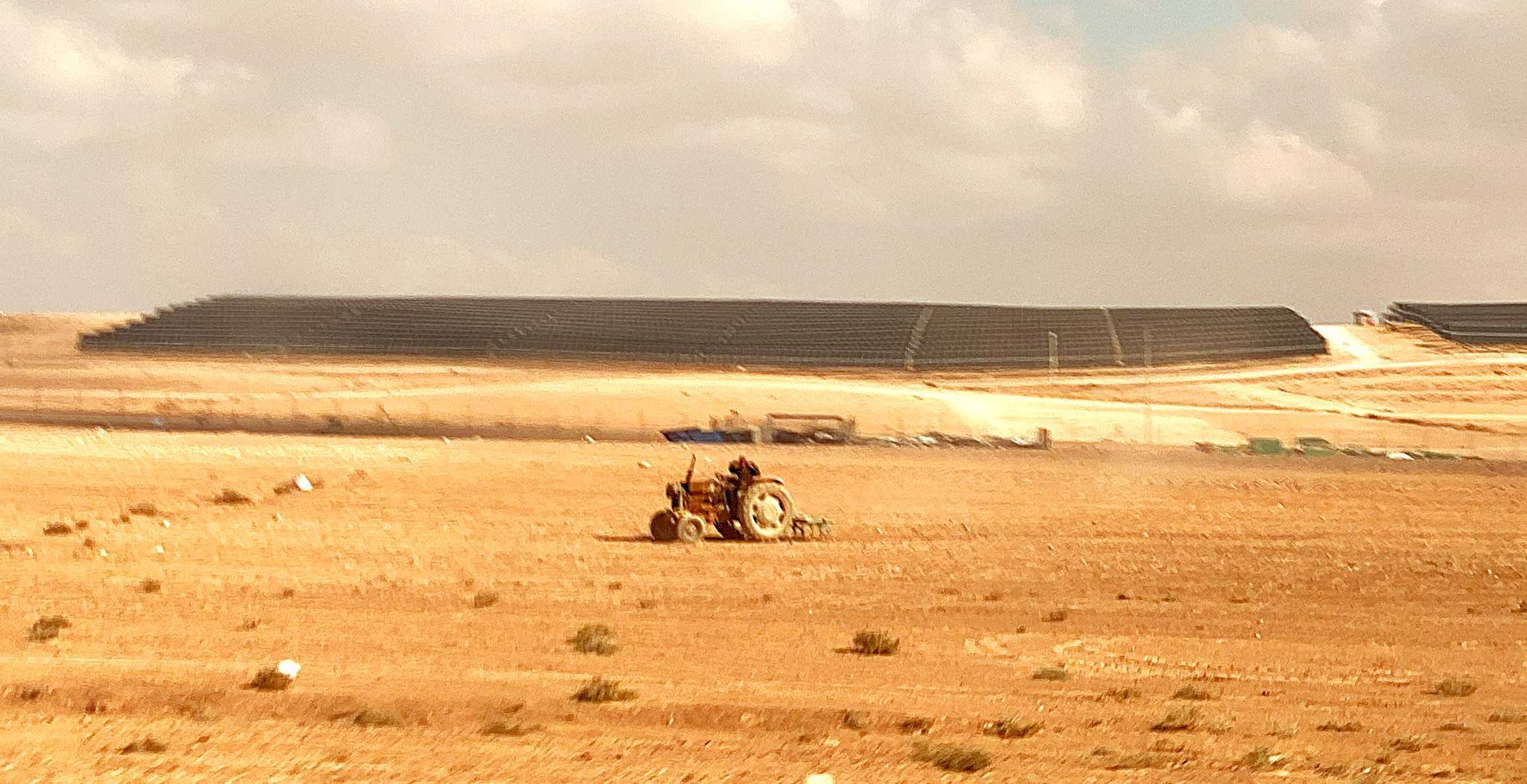
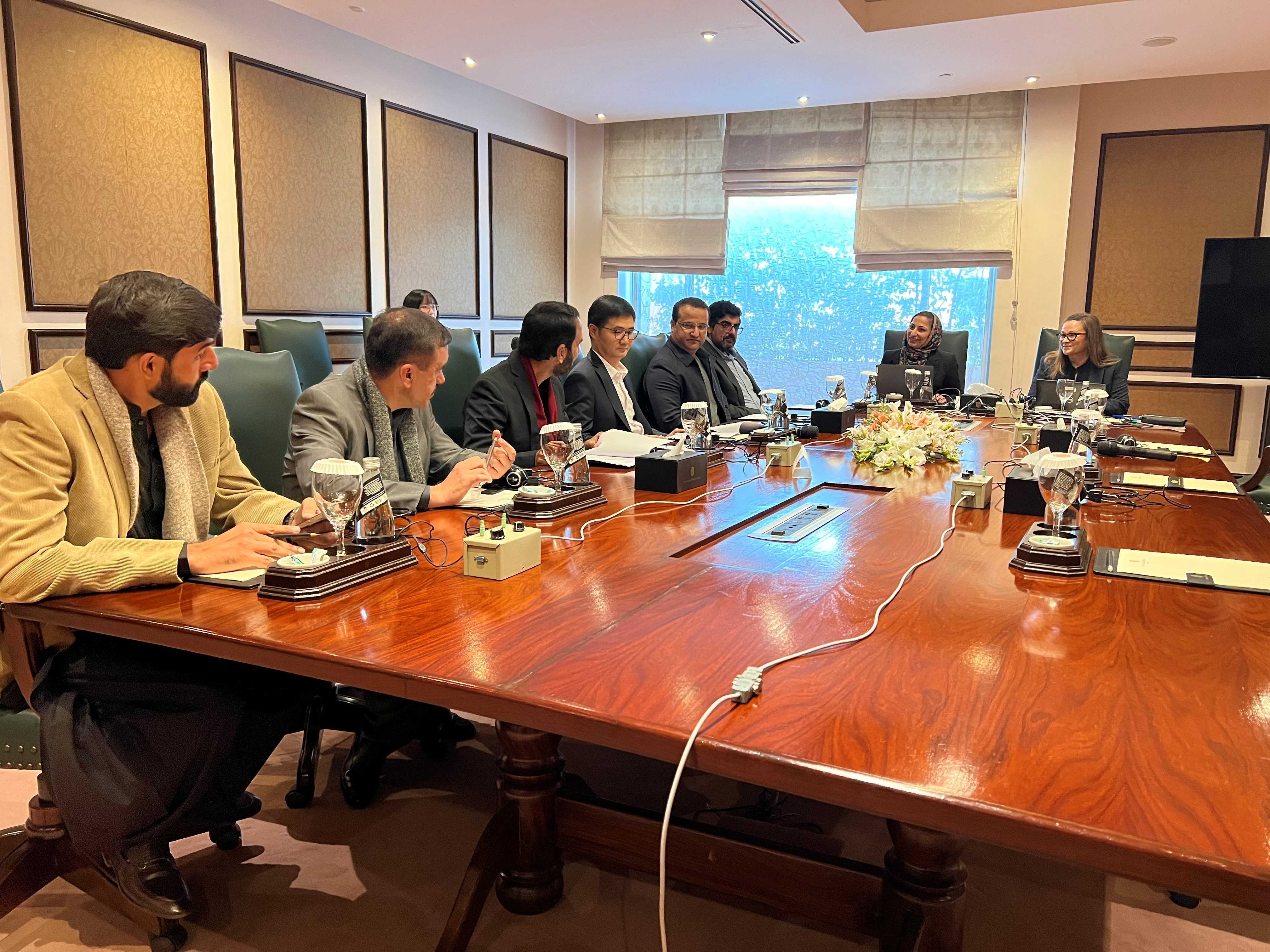
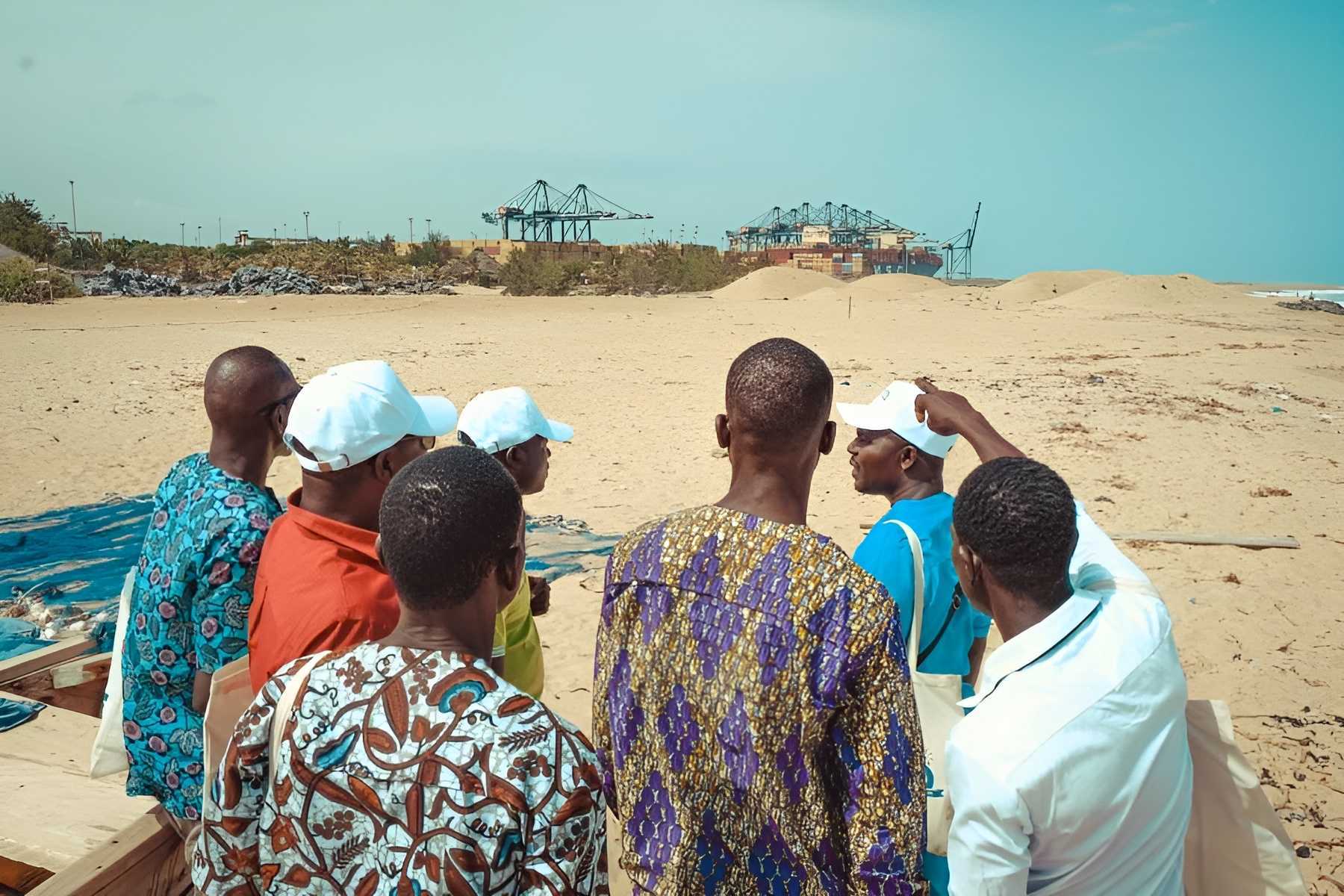
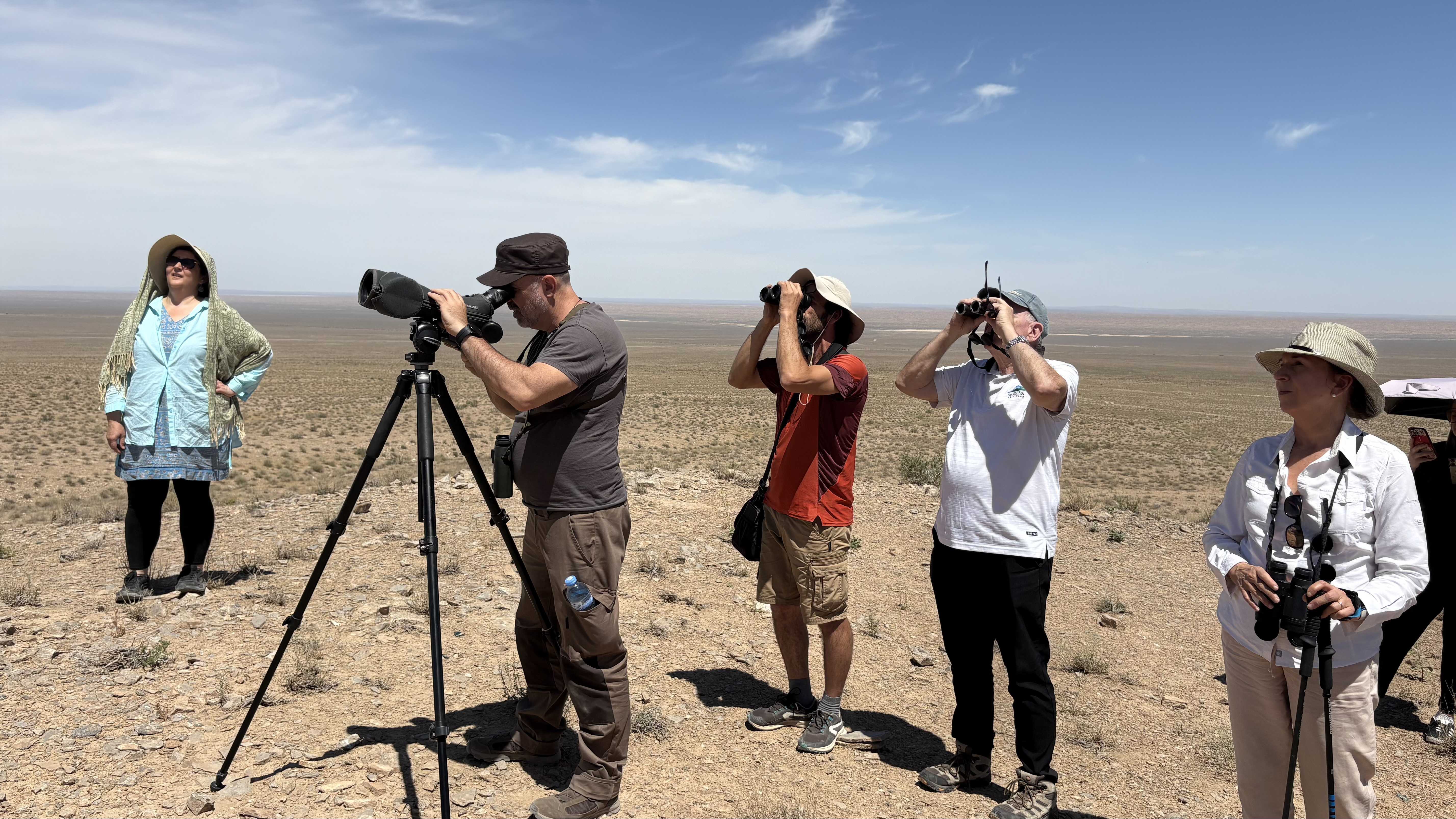
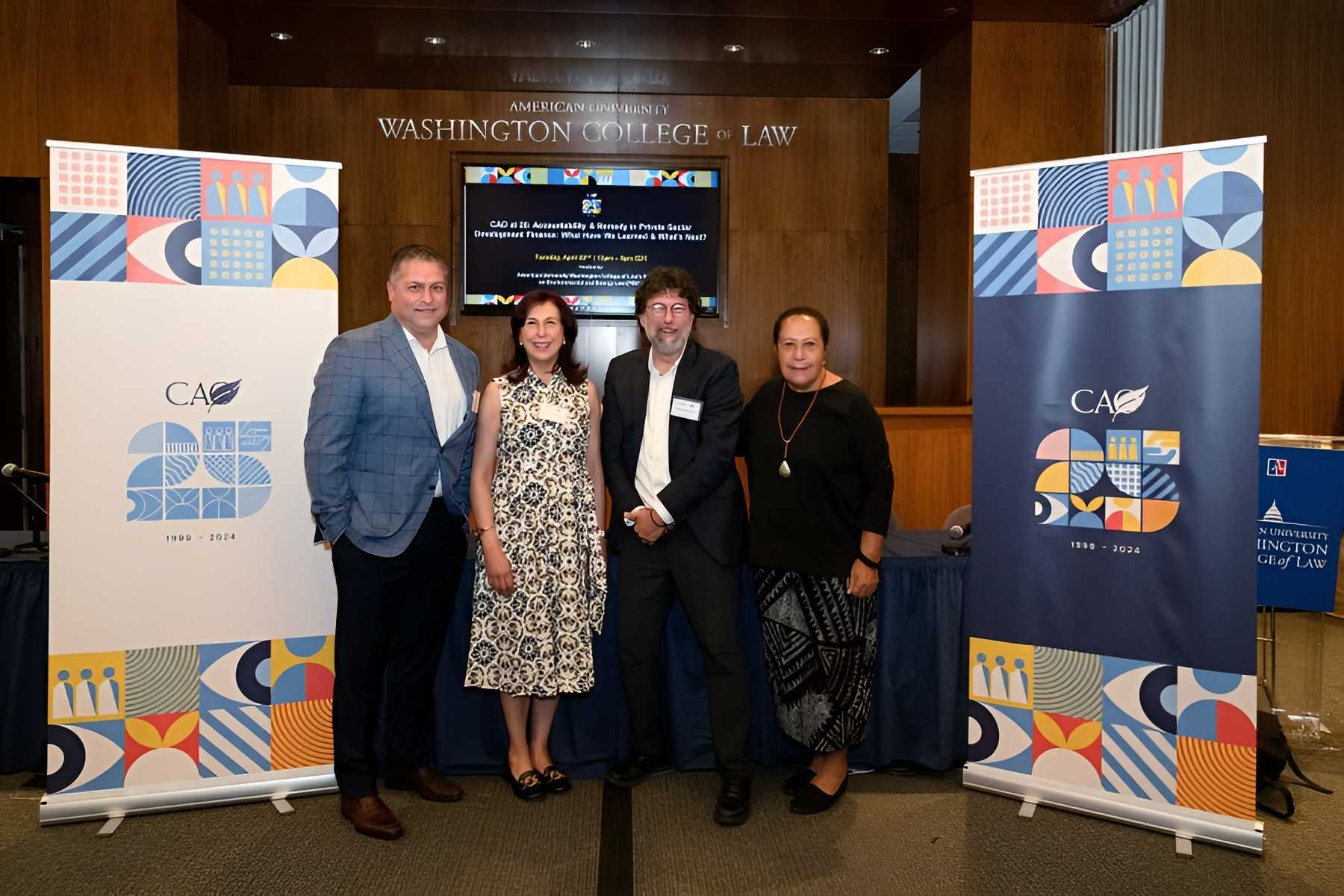
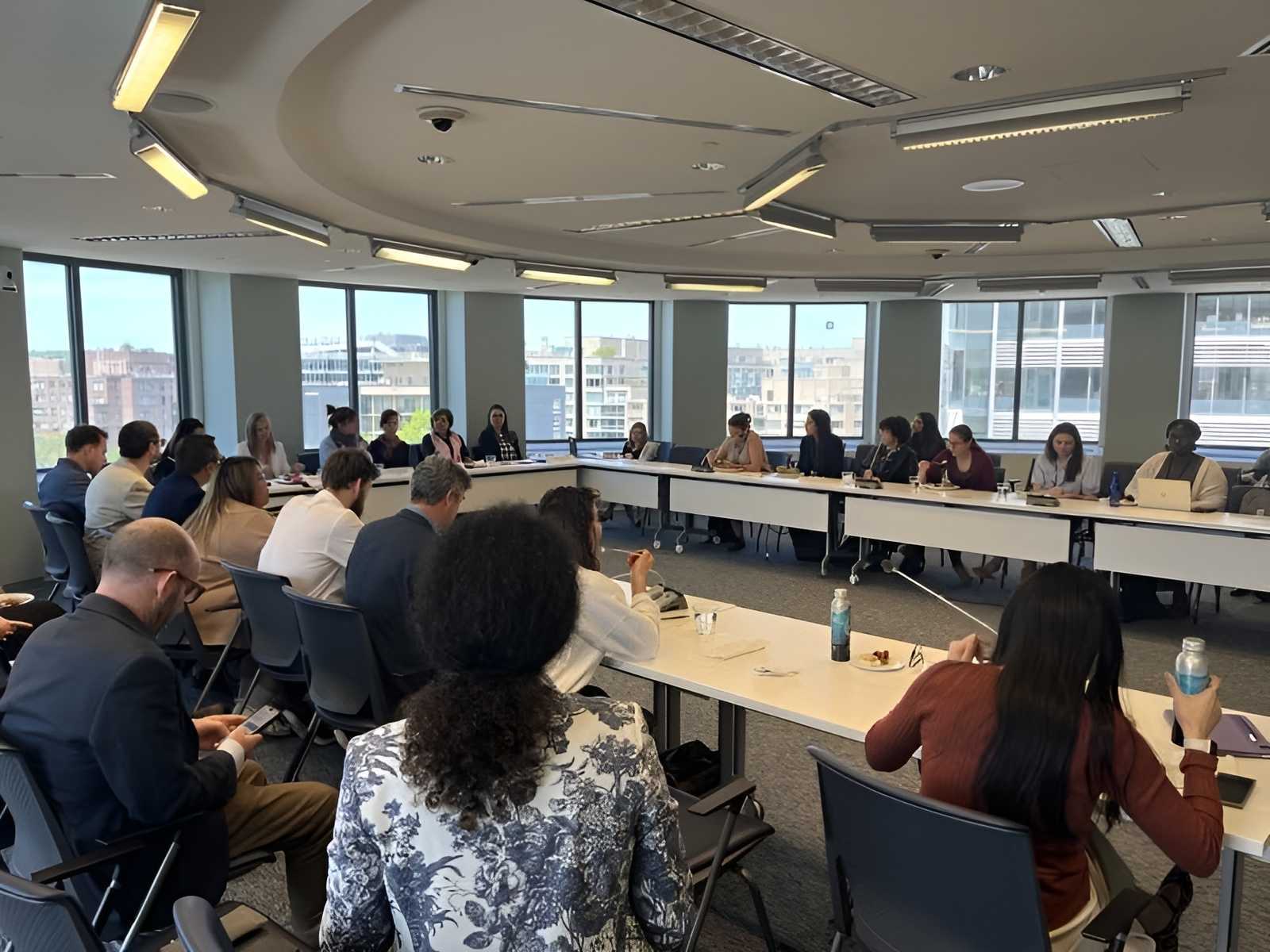
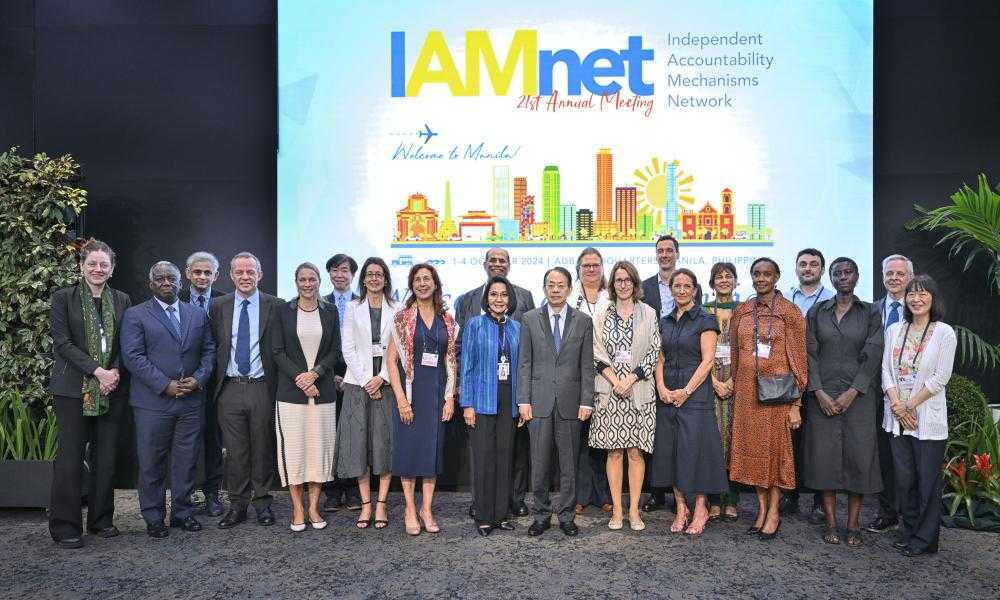
From left to right: Dispute Resolution monitoring meeting in Cambodia; Compliance case related to a solar energy plant in Jordan; Signing of a dispute resolution agreement for a case in Pakistan; Project-affected community members visit Port of Lomé in Togo; CAO Director-General, Janine Ferretti, meets with parties related to a wind power case in Uzbekistan; Current and former CAO leadership join Professor David Hunter, American University Washington College of Law, at the CAO at 25 event; Civil society roundtable hosted at CAO; Attendees of the 21st Independent Accountability Mechanism Network Annual Meeting in Manila. All photos © Compliance Advisor Ombudsman.
Close Modal
Join Our Mailing List
Get CAO’s newsletter, latest publications, event updates, and more.
Contact US
Office of the CAO 2121 Pennsylvania Avenue, NW Washington, DC 20433, USA Tel: +1 202 458 1973 CAO [at] worldbankgroup.org (CAO[at]worldbankgroup[dot]org)
